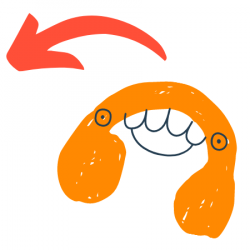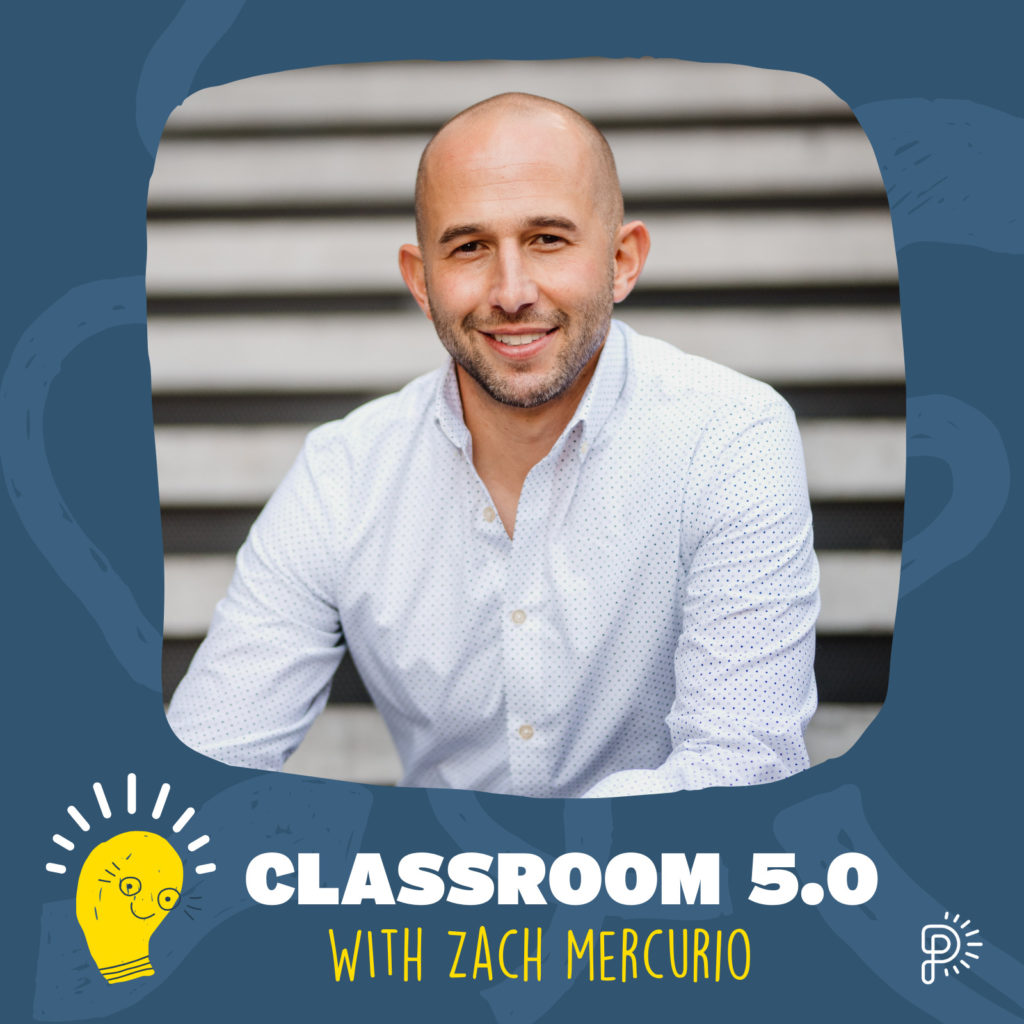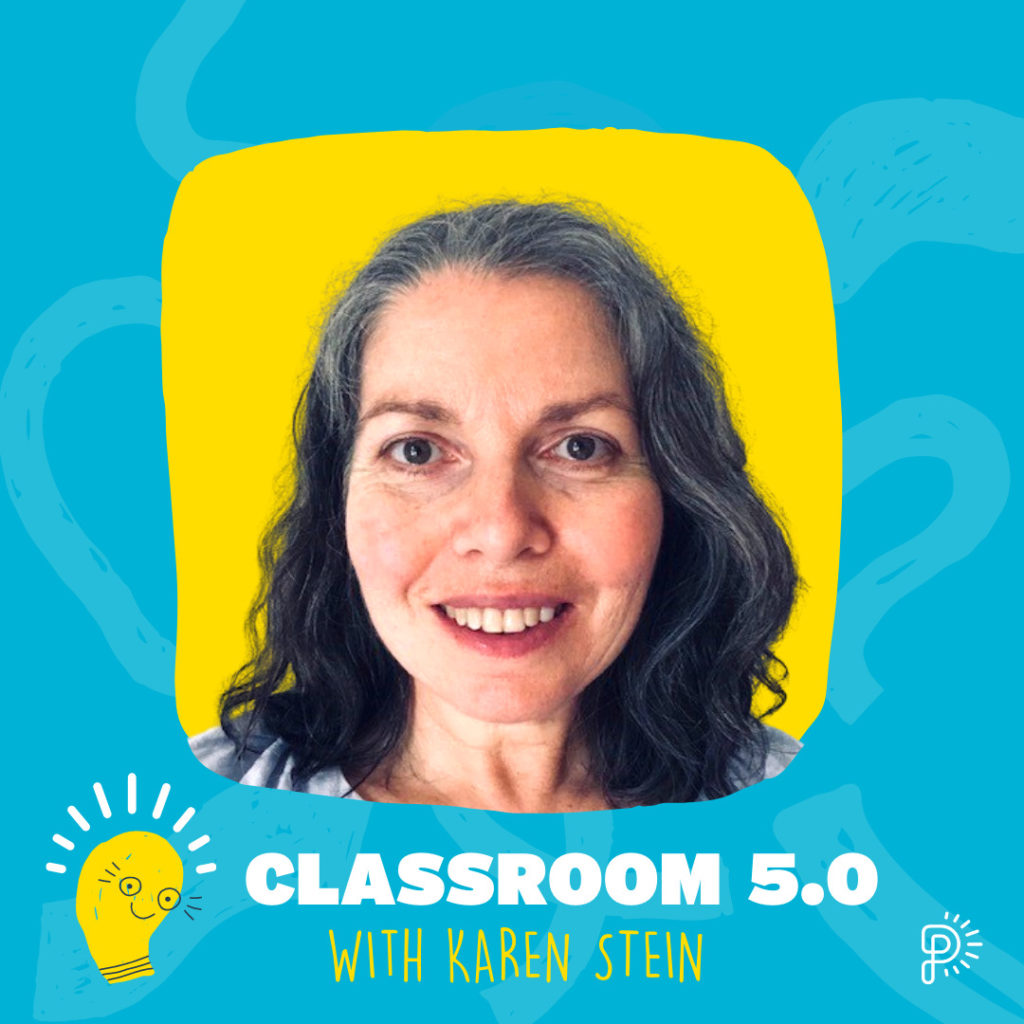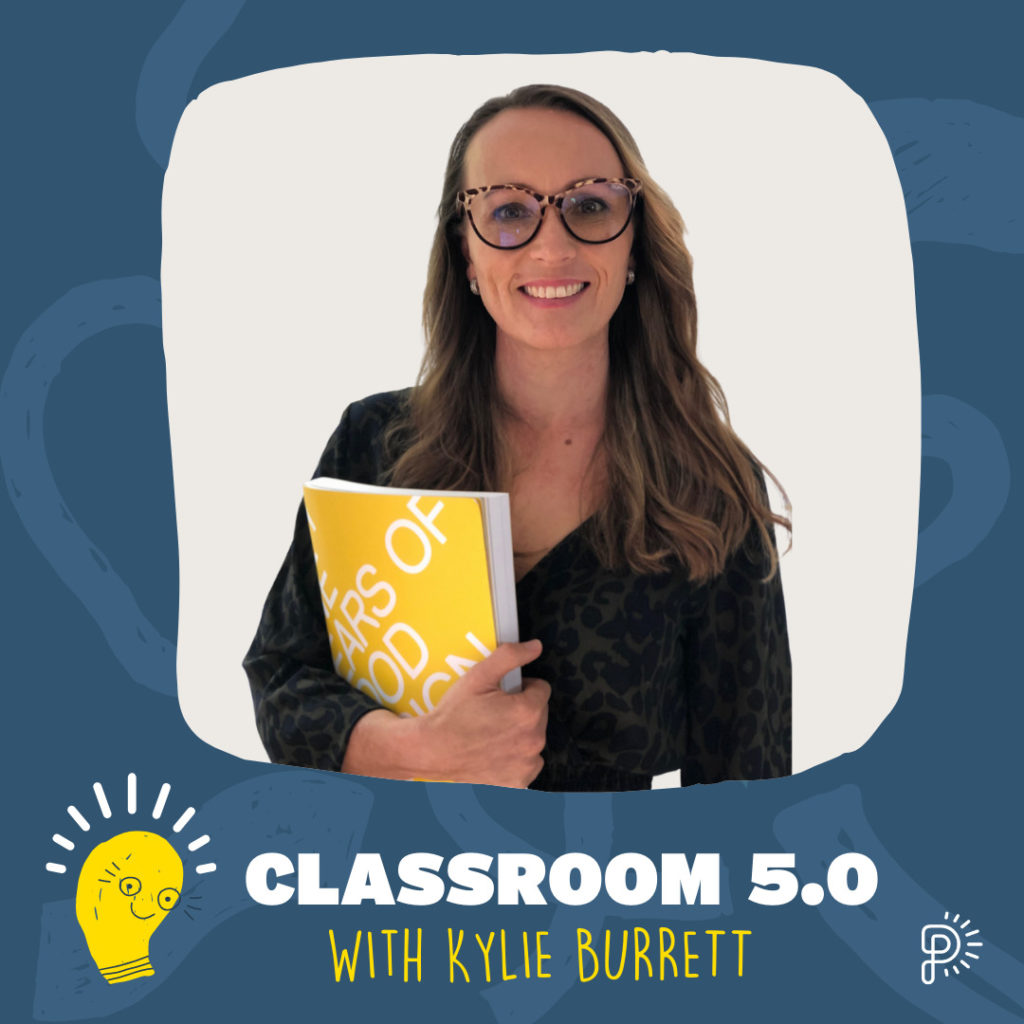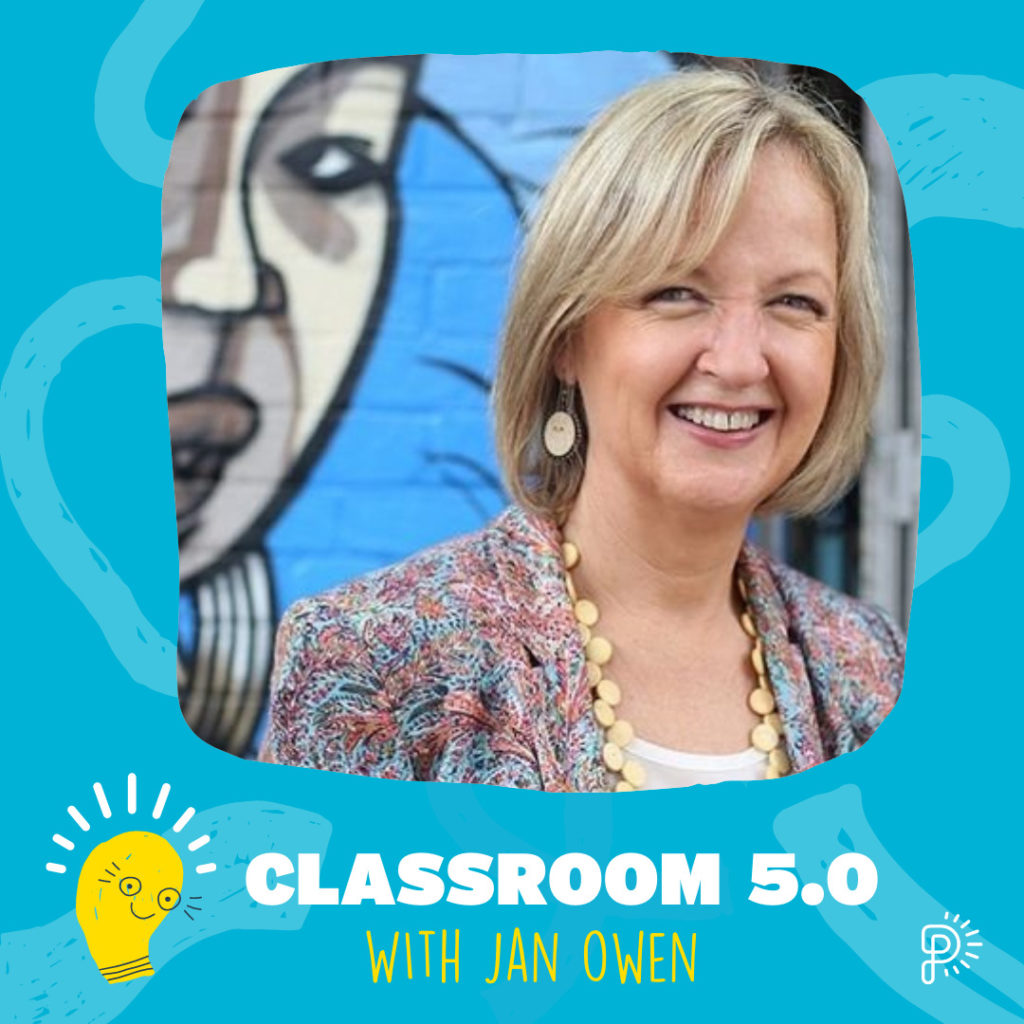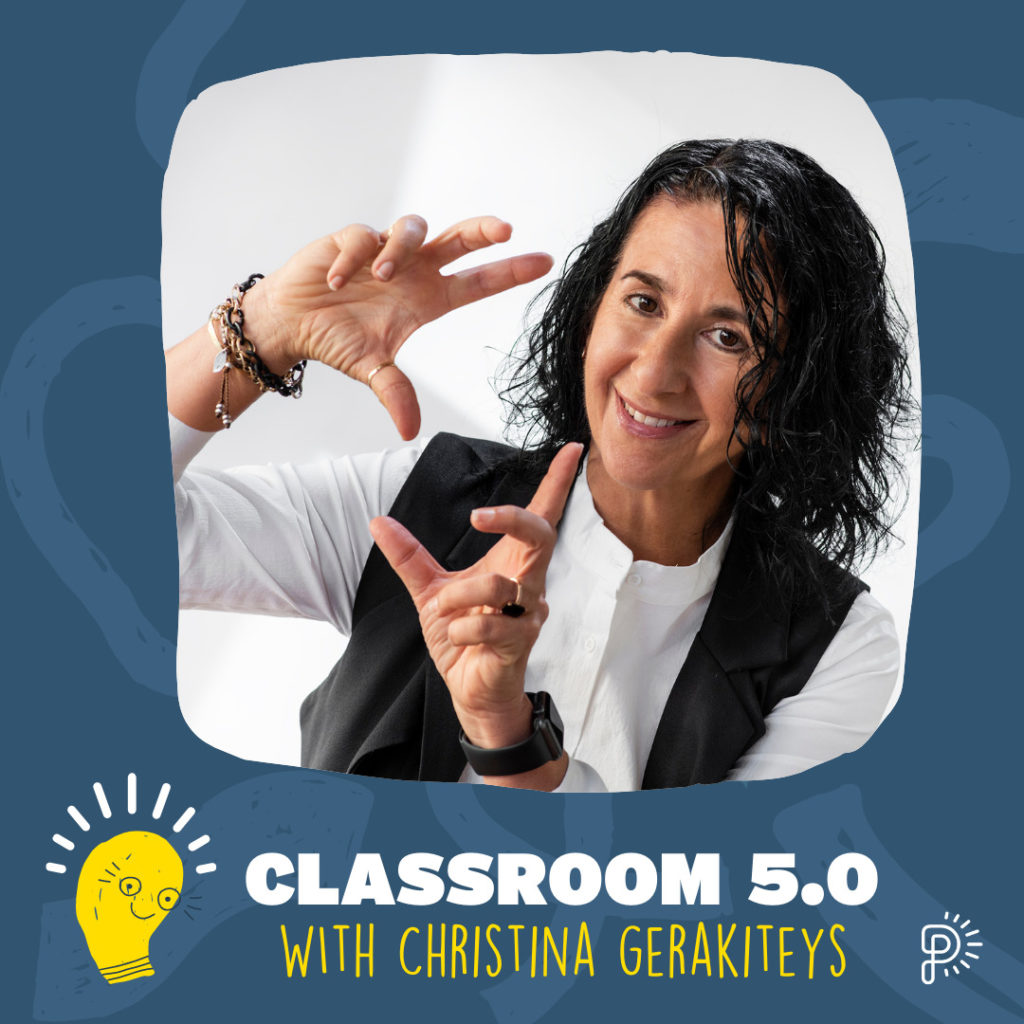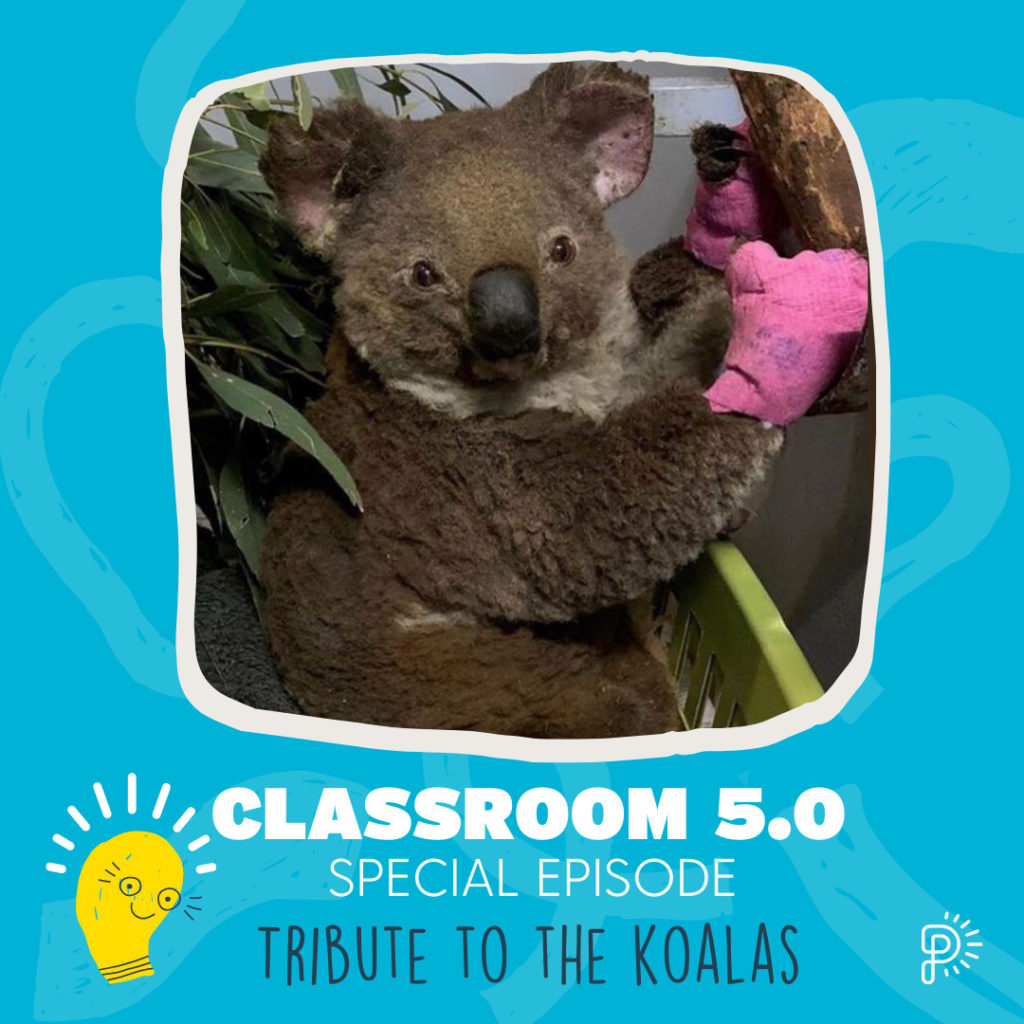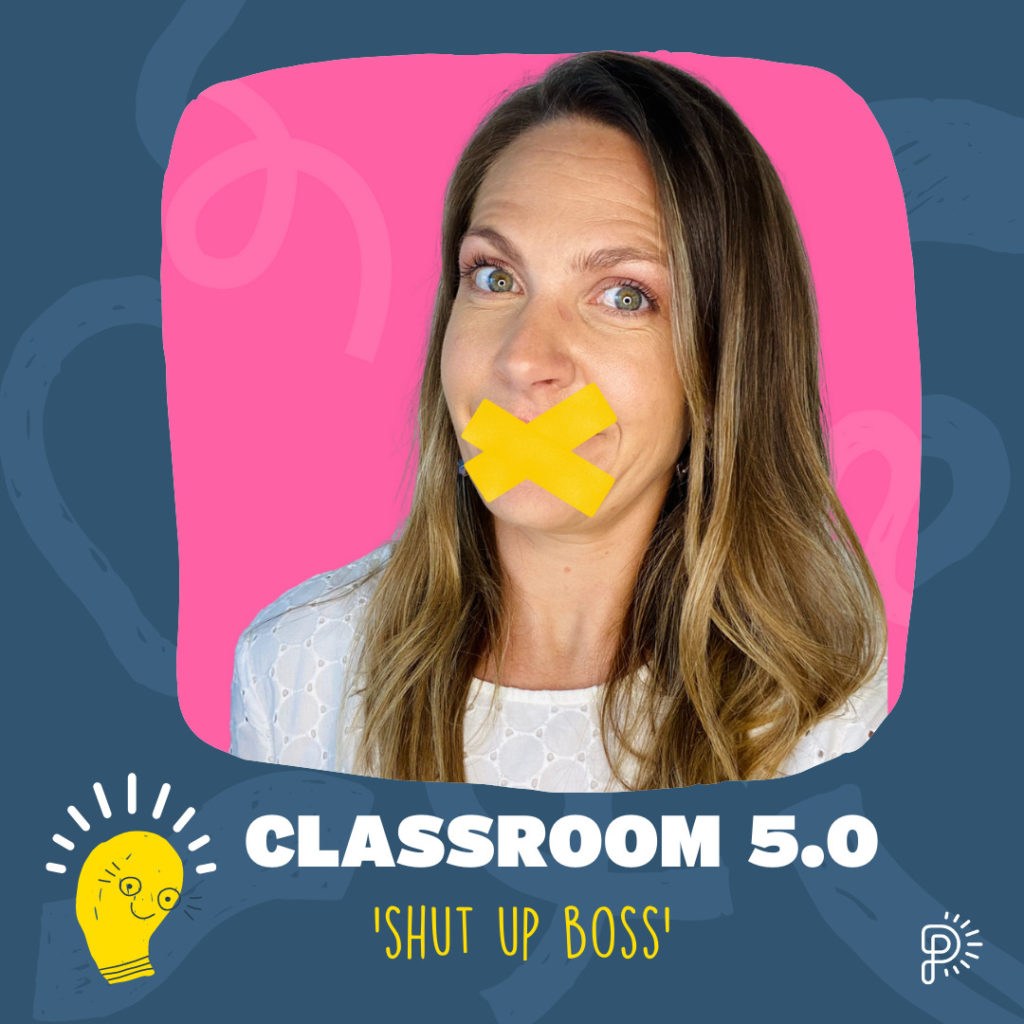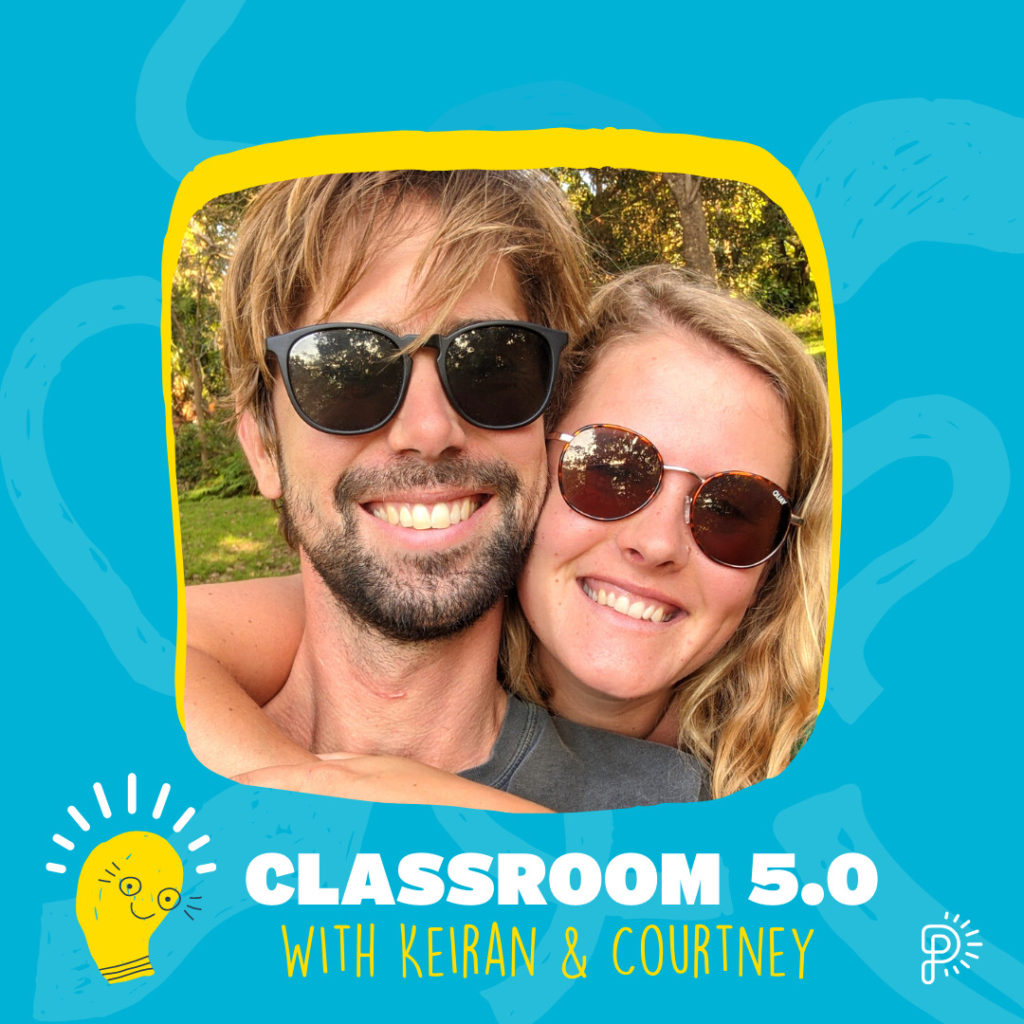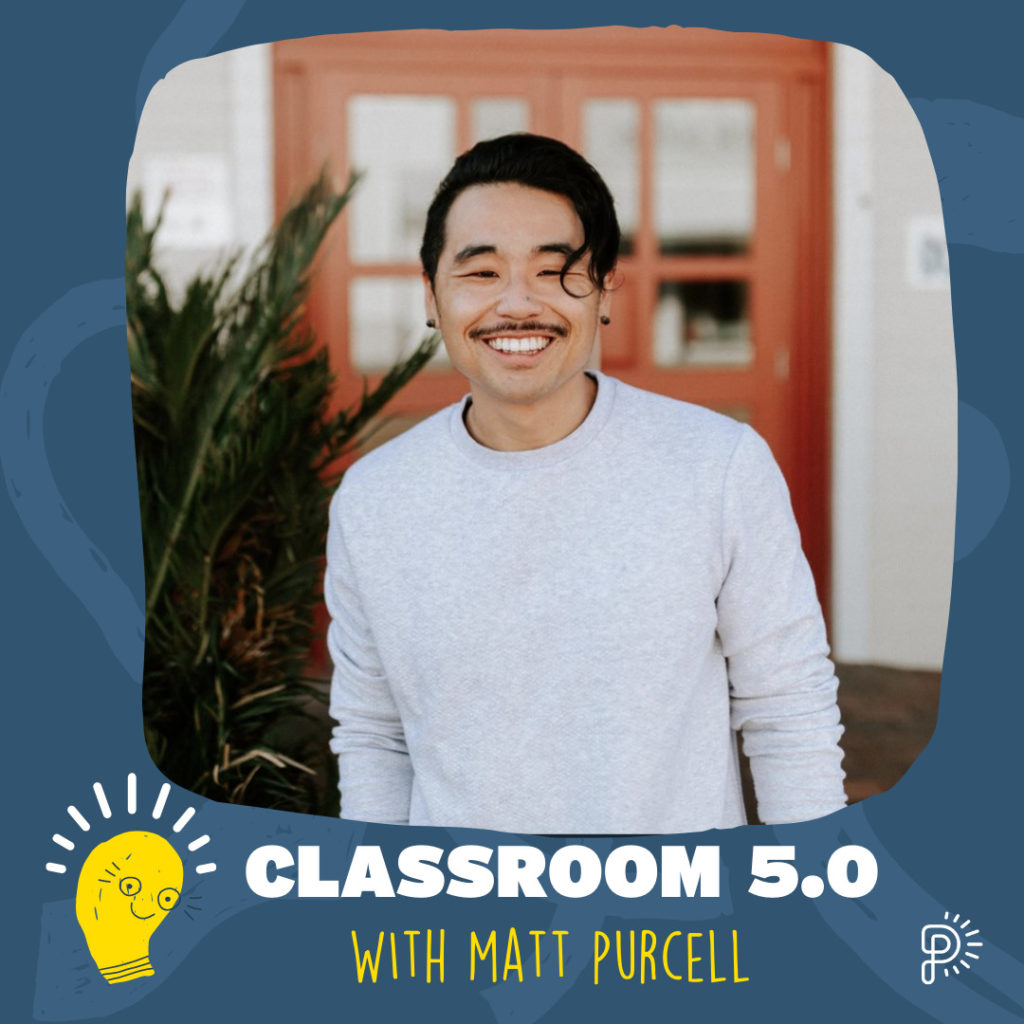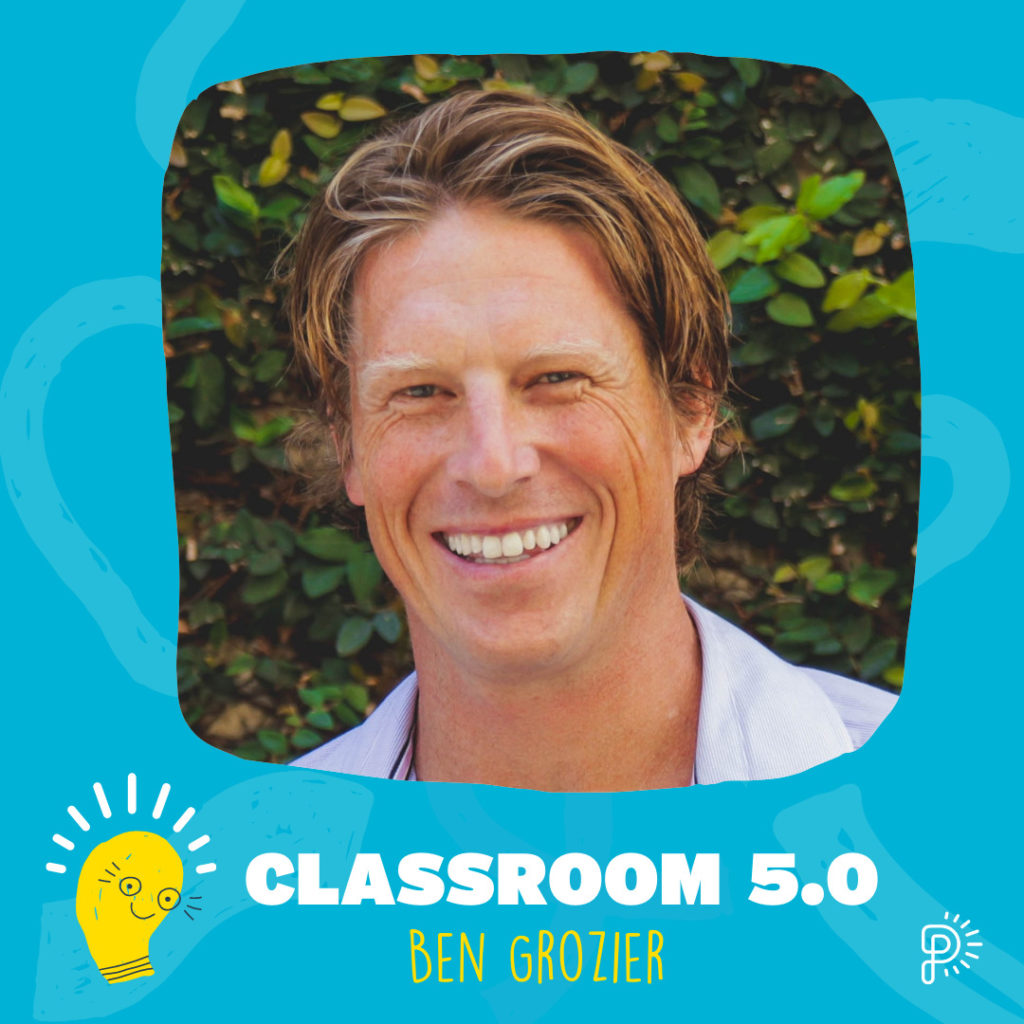CLASSROOM 5.0
THE FUTURE OF LEARNING
Episode 4: Jan Owen
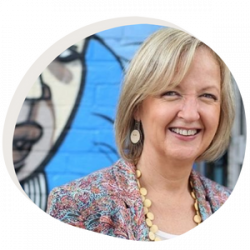
CLASSROOM 5.0
THE FUTURE OF LEARNING
Episode 4: Jan Owen
The Crystal Ball Effect: Moving Beyond Vision and Toward Action for The Next Gen
WITH JAN OWEN
If there was ever a human born with the single purpose and capability to see into the future of learning, and rally others to help create the change and make it happen, it would have to be Jan Owen. An exemplary advocate and fierce actionista for equity in education, Jan has spent her personal and professional life disrupting the status quo, for the betterment of youth. Let’s just say I consider her the Godmother of all things good and possible when it comes to dreaming, designing, and delivering change for the next gen, and in turn, the future of learning, work and leadership. Take a listen, and get amongst some of Jan’s work. You’ll see what I mean.
about Jan
Jan Owen is a lifelong learner, leader, entrepreneur, keynote speaker, mother, wife, Yogi, meditator and wellbeing seeker. To us, she’s also the Godmother of all things positive and possible when it comes to ensuring the next gen flourish. Jan’s vision for an inclusive, imaginative and courageous world has guided her through three decades of experience in founding and leading a diverse range of national organisations and initiatives, advising on strategy and innovation to CEOs around the globe, providing thought leadership on the future of work, the next generation workforce and transformation of education.
Jan’s passionate work lies at the intersection of community, business, government and philanthropic leadership, investment and collaboration to build a better society for all, not some, and her list of accomplishments speak to her impact. Jan has been named one of Australia’s True Leaders in 2018, and the Inaugural Australian Financial Review a Westpac Woman of Influence in 2012 for leadership, innovation and entrepreneurship, and in 2000, she was awarded membership to the Order of Australia for services to the Australian community. Jan is the host of the New Work Bites podcast and co authored ‘Every Childhood Lasts a Lifetime’ in 1996. And ‘The Future Chasers’ 2014. Known for her contribution as CEO to Foundation for Young Australians, Jan is now contributing her time and impact to Learning Creates a growing alliance of people and organisations who are committed to lifting Australia through a new era of learning.

“So I kind of learnt very quickly after I left school that one person can make a massive difference in a young person, it doesn't even have to be everyone. It doesn't have to be 100 teachers in the school, it can be just just one.”
~ Jan Owen
Keen to take a deeper dive?
Find links to the resources and reads recommended in this episode:
Mariane Power 0:00
Welcome to Classroom 5.0 a podcast that uncovers industry insights, cutting edge research and practical evidence based strategies, that help us all to imagine and design learning environments and pathways for this ever evolving world. So that together, we can best support the next gen to uncover and deliver their unique potential. This episode has been recorded from our hometown of Port Macquarie, which we’re grateful to share and enjoy alongside the traditional owners of Biripi country, whose ongoing cultures and connections to land and waters we celebrate, and whose elders past present and emerging we pay our respect to. I’m Mariane Power, co-founder of the Posify group and your host for today’s episode, and I am beyond tickled pink to be joined by Jan Owen. Jan describes herself as a lifelong learner, leader, entrepreneur, keynote speaker, mother, wife, Yogi, meditator and wellbeing seeker. To us, she’s also the godmother of all things positive and possible when it comes to ensuring the next gen flourish. Jan’s vision for an inclusive, imaginative and courageous world has guided her through three decades of experience in founding and leading a diverse range of national organisations and initiatives, advising on strategy and innovation to CEOs around the globe, providing thought leadership on the future of work, the next generation workforce and transformation of education. You can see why I’m a little bit excited to have her join us. Jan’s passionate work lies at the intersection of community, business, government and philanthropic leadership, investment and collaboration to build a better society for all, not some, and her list of accomplishments speak to her impact. Jan has been named one of Australia’s True Leaders in 2018, and the Inaugural Australian Financial Review a Westpac Woman of Influence in 2012 for leadership, innovation and entrepreneurship, and in 2000, she was awarded membership to the Order of Australia for services to the Australian community. Jan is the host of the New Work Bites podcast and co authored ‘Every Childhood Lasts a Lifetime‘ in 1996. And ‘The Future Chasers’ 2014. Known for her contribution as CEO to Foundation for Young Australians, Jan is now contributing her time and impact to Learning Creates a growing alliance of people and organisations who are committed to lifting Australia through a new era of learning.
Mariane Power 2:29
Welcome, Jan!
Jan Owen 2:32
Hello, thank you for having me.
Mariane Power 2:35
It’s so good to have you here. It’s good to connect again. Thank you for joining us. (Pleasure) Speaking of learning what I didn’t share just now and it is in your LinkedIn profile, but I saved it, is a curious fact about your own education, which I didn’t know about, that despite failing set school exams, failing set school exams, I feel like I should be emphasising this particular point in our time, and dropping out of university, you’ve been awarded honorary doctorates from the University of Sydney and Murdoch University in Perth. Given we have a whole generation of young people, right now, looking to sit exams, having exams disrupted, having education in its formal capacity disrupted, I can’t wait to hear your pearls of wisdom through your experience.
Jan Owen 3:21
Well, I think that we are in a very interesting time. And it’s obviously extremely stressful for lots of students. But I also don’t want us to paint a picture that this kind of one size fits all. And I think that’s my big message about education learning that we created, and rightly so when you want to lift an entire population, like in a period post war or kind of new eras, you try to create a system that you can get as many people into as possible, so that you, you lift performance. And of course, that’s what happened to education, you know, probably after the Second World War, and then again, kind of in the 60s and 70s, after there was so many movements, women’s movement, civil rights movements, and many more people coming into education learning. And that’s great, and it all served its purpose then and there. But what we then have discovered, you know, decades on is that education needs to be very differentiated. People learn very, very different ways. People are not one homogenous person. We are many kinds of people with many kinds of learning styles, many kinds of backgrounds that impact and influence those learning styles. And also we are many people, like for instance, First Nations people who bring 60,000 years of learning, and lifelong learning, and learning from land and country and people and culture. So we now know that learning is completely different probably to what we created and what was established in the in the 1900s, 18 and 1900s. So I think that I was very much, very I’m one of those people that was in a system that kind of was still very homogenised about the way you learnt, where you learnt, how you learnt, and what you learnt. And I, like many people, I think I was just a bit more vocal about it. I just fell out of that system. And I objected to it. And I objected to it by basically either not showing up, or by not doing any work at all. Or thirdly, in my more creative moments, by doing interesting things at school by using the school environment, because I had to be there, just to do other things. And after I went through three or four schools, I finally got to the last school, and they were pretty cool. This was, and unusually so, because my last stop was a girl’s Catholic School, which my parents said, ‘When it all goes to hell, and when no other school will take you, you are gonna end up, at a girl’s Catholic School’. And that’s how I ended up at a girl’s Catholic School with a very high fence. But turns out that girls Catholic School, which happened to be the Bridgettine Nuns who are the very academic nuns, they were all getting PhDs, they were all very interested in the world, they were very interested in the future of learning. And they ended up amazingly and an unlikely place of saying, ‘We know that you’re not into this kind of normal system. So at least come and do some of the things that you want to do.’ So at that very short period of time, I got to do things like, get into the debating team, and the debating team got into the state finals. And I got to set up the first girls motor mechanics course for girls at a girls school in Australia. And I got to run a massive newsletter that ran for hundreds of pages, I don’t know how, that we produced every couple of weeks, and I got to do a whole bunch of outreach stuff into the community. None of it, which is the whole purpose of Learning Creates Australia by the way, none of that was taken into account in any way, shape, or form, in formal academic terms. None of it, none of it mattered, the fact that I spent 40 hours a week doing outreach and community coming up with new ideas, being an entrepreneur, there was no way that that system could recognise me and all those things that I knew and could do, which were multiple, by the time I left school, there was no way that they could do that. And so one of our purposes about Learning Creates Australia is how might we broaden the formal recognition system so that young people can bring what they know and can do, in and beyond school to be recognised? And how could we do that in a way that had utility and trust? Not just a badge that says, ‘Here’s a badge, you’re a great girl, boy, Scout, whatever’. But actually, ‘We’ve assessed it, we’ve measured those things that you’re doing, and we can give them a context and we can give them an assessment or recognition within the broader system.’ And if I had been able to do that, I would have been a Grade A student.
Mariane Power 8:23
More than a Grade A student! I think you probably would have set the tone, for exemplaries.
Jan Owen 8:29
I don’t know, but I definitely would have got a different score at the end of the game. And I would have had a different trajectory, to be honest, and it, but it, but it, also I would have left school with a different sense of confidence, and a different mindset going into the world rather than a student. And I left school, obviously, with huge relief, but also with a massive sense of failure. So imagine starting your life out in the world at 17, with a massive sense of failure, because you over and over again failed the school system. I would not wish that on any student or young person because I spent the next you know, 20-30 years working through all that. And getting imposter syndrome and you know, all those things that we talk about, particularly as leaders is actually those things that lots of them were laid down in those first 16-17 years of our life.
Mariane Power 9:31
I can only imagine that the adults in your life or the teachers in your life who did shine a light on your strengths and welcome those opportunities for you to be able to practice them even though there wasn’t that formalised acknowledgement or like you said recording which I know you’re working so hard to to establish now with Learning Creates, what difference did those people make for you?
Jan Owen 9:51
You know, it’s interesting, isn’t it because we’ve always said this, and I really discovered this in my work with young people because obviously very not long after I left school I kind of went on to entrepreneurial things and worked with young people that were all at the margins. So they were either young Aboriginal and Torres Strait Islander young people who are living in the inner city, in kind of a lot of different complex contexts, or, you know, I then went on to work with young people in foster care and state care, which is a sort of a background that I’ve come from as well. So I kind of learnt very quickly after I left school that it’s, you know, and the research is in, it’s kind of like one person can make a massive difference in a young person, it doesn’t even have to be everyone. It doesn’t have to be 100 teachers in the school, it can be just just one. And at my school, the last school I was at, it was absolutely just one who basically said, ‘I see you, I see all this struggle and what’s going on. And you know, I’m just going to back you and just get behind you and kind of give you cover as well from all the other teachers for like, what is she doing and how she’s getting away with it’. So somebody who sees you can give you cover and the space to kind of at least have a tiny bit of self expression. I think it’s really important. But equally, my teacher in Year Eight, who took my parents aside and said, ‘Listen, Jan’s not going to go anywhere in education. And she should drop out now at 13. And just honestly just go to Coles and kind of get into the checkout chick thing.’ Now there’s nothing wrong with that, by the way, if that’s what you want to do, and if that’s where you are. But my parents went ballistic, my parents are academics, and they just looked at this teacher, and said there’s no way that our child’s dropping out at 13. Because you’ve decided she has no, she’s not going to go anywhere. So that teacher also had a massive impact on my life, because that teacher said, you are going to fail in this system. In your first year of high school, they said you’re going to fail in the system. And you shouldn’t even be here. So I had these bookends, which had a massive impact on me. I was just lucky that I had a ridiculously optimistic kind of resilient spirit and mindset. And I was a very free spirit. So I kind of do whatever I wanted to do, despite what people would say. I honestly know not every young person is like that, right? Lots of young people would be extremely damaged by that kind of input, those kind of inputs. So I think we have to be very, very, very careful about knowing who it is that we’re working with that we are not in a homogenised world and neither should education and learning be a homogenised system that we are now in a very customised, personalised world in every part of our life. We can customise what we buy, what we experience, how we experience it, where we experience it, what we experience, and education and learning is absolutely going in that direction. And that is a good thing for students. And it’s not that we shouldn’t learn basics. And I, we’re never going to walk away from the fundamentals, obviously, you need to be able to read and write and add up. But after that, the foundational pieces, we should be creating many, many, many pathways for students to learn, to show up, to engage, knowing that that sets the antecedents for everything that happens to them in the way that they approach the world. And I don’t want anybody leaving school, like I left school. You know, with this massive cloud of sort of failure and you know that you’ve got to every day kind of rise above that. That’s not a fair outcome for any young person.
Mariane Power 13:50
It’s not a fair outcome. It’s not a smart outcome either. I mean, you and I just offline before we started this podcast, we’re talking a little bit about neuro divergence and how sometimes it doesn’t quite fit in the mould. And one of the other things that I’ve just always admired and you’ve spoken to it now about you is your relentless optimism and your disruptive, free permission to say whatever and do whatever in a very approachable and practical realistic way. So I yeah, if you haven’t checked out Learning Creates jump in, dive in, so much of what you’re speaking to resonates with us as well. Last year, we piloted the Purpose Passport, and it was in a very linear, which we thought at the time online, great, super student led. And the kids are so smart! What they fed back to us was they loved the content that was awesome, but they wanted to be able to pick and choose themselves. So what’s come out of that is a redesign speaking to your idea of how can we create these, choose your own adventure style, interests based still aligned with curriculum, but more of a modular and micro learning and I think we need to be seeing more of that. So hearing you speak to that I hope our listeners today can start to think about how they can weave their own learning practices for that same, for that same reason. But jumping back a little bit prior to Learning Creates, because I’m also aware some listeners may not be aware of your work at Foundation for Young Australians, which is where you and I first connected while you were there as a CEO, and both obviously are in that youth space. So I have to ask, when you speak about youth, there’s a passion, it’s so clear, but why you? Is it because of your personal experience? Or what is the magic spark that keeps bringing you back to shaping the next generation? I have to ask.
Jan Owen 15:33
I think you’re partly right. I mean, obviously, my own experience, and I’ve just I’ve always felt two things. Number one is that young people are kind of the keepers of, kind of the sense of centre of a community. Some people are always the ones that were, and we, this happens in our own families, by the way, and there’s always one in every family who calls out the BS in a family.
Jan Owen 15:56
I think I was having my family, by the way, but you know, one of my children’s that as well, there’s, there’s always one student in the classroom who calls out, you know, what’s actually really going on, there’s always one person in a friendship group, you know. Young people have got this ability to really assess very quickly what’s going on. And I find that that is actually as I said, that’s like a course centre, moral compass of a society. And you needed a macro level with the people like Greta Thunberg. But actually, I’ve seen that everywhere in all life, even young people who’ve been the most disenfranchised, the most vulnerable, you know, again, that young people in foster care in state care, their ability to call out what’s going on, and also to have a commitment to making things better for those who come after them. So not just self indulgent and self interested, but actually make it better is, I think profound, and that needs to be held, it needs to be cherished, it needs to be honoured in our societies, and celebrated in a really quite serious and profound way. So that’s the one thing. So what, what place young people hold in our society. And then the other thing, which I’ve always found with young people, which is why I love being with young people, and I love being mentored. So I have reversed mentor relationships with every young person, I know. (I love that) Because they are the future, they can see the future. So FYI, I always knew what most significant social issue was going to be. Because young people were already talking about it, particularly young people who again, were on the margins, or the kind of outliers or the entrepreneurs. So if we were fortunate to be able to work with 10s of 1000s of young people in all kinds of different places, not the same places, some as young entrepreneurs, some as kind of, you know, in big programmes like $20 Boss, where we saw young people, you know, with this was out in school entrepreneurship programme, we saw, young people actually running it, the idea of being able to set up a micro business, but they always put purpose at the centre of it. And we were able to go to business and say, ‘You guys need to keep up with what’s happening to the next generation, because they put purpose, planet, profit, and people and actually profits last in that order’. They create businesses around those things, (Intuitively, without being prompted? Wow!) intuitively! Near 12 and 13. So this is, you need to know what’s coming at you in the next 10 years, the kind of employees, the kind of consumers and customers you’re going to have. So there’s that, and then we saw this group that could absolutely see that injustice and unfairness was a very big issue for generations of young people. Always has been, I don’t want to just leave it to this generation. But the ability to act on that has been absolutely amplified and accelerated because of social media, because of the ability to talk to not just the people around you, the five people you know, but 500 people you know. The ability to use your wallet for the purchases that you make back to that other idea. So the new generation of people, have got a mindset, they’ve got the tools, and they’ve got the ability and they’ve got the voice to actually have a say about what’s going on in society. And if you listen to them and watch them, you will see what’s coming. So I saw the climate change and I knew that there was going to be you know, you could see that Black Lives Matter was coming through just looking at 14 and 15 year olds and what they were talking about. So we think that they are only talking about clothes. You know, the latest fashion, the latest serve, the latest car, they are talking about that but they are also simultaneously talking about these other things kind of seamlessly, sometimes kind of embedded. So it’s actually hard to see the layers of it looks you kind of looking at the surface, and they’re talking about this, but actually underneath, they’re talking about these 10 other things. So we are very fortunate that young people are the forecasters of kind of, they’re the future, they can see the future and they bring the future, the present. And I’ve always valued that. And that’s why I have a lot of young people as my mentors, because I’m kind of really connected to, you know, what’s happening and what’s coming, and what are you caring about. And so those two things, I think, are really, really, really important that kind of centre, the compass keeping us, that moral compass really clear. And then the future, the future chasers, which was also a book that we wrote with a whole bunch of young people about things that they were seeing.
Mariane Power 21:03
Hey, there I wanted to tell you about an exciting and innovative solution we’ve been designing to help solve this problem of how we best prepare the next gen for an ever evolving world and future workforce that’s going to demand a whole new set of skills and mindsets in order for them to thrive. The Posify Academy is Australia’s first student-led, evidence-based and curriculum aligned, well being and career development platform, helping young people aged 10 to 14, uncover and deliver their unique potential. It’s the first of a trilogy series, thats helping young people move seamlessly and with confidence from education and into industry as they design a life and a career of impact. Teaching skills like communication, compassion, creativity, critical thinking, agility, curiosity, resilience, problem solving, all those human capability skills that we talked about here on this podcast, and connecting them with a sense of purpose. To learn more, you can visit theposifygroup.com.au/posify-academy. Now back to the show.
Mariane Power 22:06
You mentioned that FYA, so much of the research that you were doing and findings that you were having with young people, and this real curiosity, I’m hearing that you adopted to learn from them. And again, for our listeners who might not have come across that concept of transferable skills that really came out of the research that you produce. I know that there’s been a lot of talk about what the future skills look like. And there’s been a bit of time since that worked on them, what have you seen happen or take place in terms of those trends that we imagine will be so far into the future? You know, what are the skills that young people themselves are wanting to develop, and that employers today are wanting to see in the next generation?
Jan Owen 22:43
This work that we started in 2016, called the New Work Order Series, which is a set of actually, I think, ended up being seven reports.
Mariane Power 22:52
I think you might be right, it’s a big body of work, I’ll put a link to it in our show notes.
Jan Owen 22:57
Yeah it’s a big body of work. And we were just so thrilled that work got picked up by the World Economic Forum and OECD and had 15 million kind of views of the reports and the work. So it was a really important work, because it was the first time that anybody had really said, you know, again, what’s coming for young people? And are we preparing them and equipping them with the skills and the mindsets and the capabilities to face into that? And if we’re not, then what do we need to do? So one of the areas, one of the reports and one of the areas, there are lots of things we covered, but one of the areas was obviously what are the skills and capabilities. So instead of thinking about jobs and linear kind of career progressions, and that you go on one track, and you climb a ladder relentlessly, and one track of one area of kind of expertise or interest for your whole life, and then at 60 you’d be given a gold pin and you know, you’d go home, you’d put the caravan on the back of your car and you drive around Australia with the grey nomads, and then you go to a retirement village and then you die. Instead of that-
Mariane Power 24:07
Please tell me there’s an alternative Jan!
Jan Owen 24:08
Instead of that we’ve, we’ve now got the kind of jungle gym, right? So that kind of ladder, whether it was visible or invisible, and that kind of relentless kind of march to the end has now been replaced by a kind of a ladder, and it looks a bit more like a jungle gym. So the ladder has been replaced by a jungle gym. And often I’d say to 15 year olds like so there’s that model, which is sort of what your parents and grandparents did. Well there’s this model the jungle gym, which is a lot less certain. But you know, you can go in and out, and up and down, and you know, which one would you like, and they all went the jungle gym. Whether that’s because they just been come out of primary school where there’s a lot of jungle gym time or not, I don’t know. But I think the idea that, you know, what we’re going to do instead is not think about jobs so much in careers, but we’re going to think about skills and capabilities and how we might take those into different areas. So for instance, one of our reports looked at the fact that if you took if you took one job in a kind of growth area, whether it was in tech, or whether it was in, you know, the care economy is massive. Now, if you took one job in one of those clusters of work, it could open up up to 15 other jobs, if you could think about the skills and capabilities that you are learning, and how they might transfer to a next job. So we did some, a classically brilliant piece of work, where we showed that actually somebody who worked in retail, and had a lot of skills in customer service and problem solving, and troubleshooting, which is what you do all day in retail, would be actually brilliant in a care role with children. A lot of the skills and capabilities about being responsive, and troubleshooting and being able to relate to people quickly and solve problems are things that you could take into many jobs in the kind of caring economy, the care industry. So that really helped a lot of people. And I think it gave people a lot of permission to say, number one, you’re not stuck in the one job. But number two, the skills and capabilities that you’re building in that job, you can take to, you know, up to 13 other jobs in one cluster. It’s amazing, and we actually named what those other jobs might be. So it was even clearer. And so that kind of took us back to school, of course, and saying, well what do we need to be doing in the classroom and in the school community, to ensure that, again, ready for that different environment, and that different environment meant, you know, we went and looked at job ads, actually, we looked at millions, like 4.6 million job advertisements in Australia to try and analyse what employers were asking for. And beyond the kind of foundational things they were asking for things like creativity and collaboration and problem solving. They were asking for things like bilingual, like, you know, do you have another language because we’re living in a global environment. These were, these, what used to be called soft skills, which we now call kind of core skills or enterprising skills became just so clear that that’s what you are going to need. And so again, what are we doing in school that might accentuate and again, segue to Learning Creates actually help us assess and recognise those. And because many of those skills and capabilities we’re not, they’re not being assessed, they’re not being recognised, you know, Singapore got creativity for the first time to assess it only a couple of years ago in this system. So, you know, we need to find ways of not diminishing them by assessing things like creativity, but actually do need to find ways of how we might assess creativity, problem solving, collaboration, teamwork, all the things that you’re going to absolutely need to function. In a world where COVID has shown us COVID has literally partened the curtains and shown us that we will absolutely be working remotely, we will be working with people that we may never had met face to face, we’ll be working across many teams, not one team will be going, sometimes we might work for ourselves. Sometimes we might work with some other people on a project. Sometimes we will be working for an organisation. Sometimes we might be doing all those three things at once. Which you and I are doing. So all COVID did was say were part of the curtains. We always said that was the answer the curtain, now we’ve pulled the curtains aside, it’s right here. So now it’s become urgent, not a nice to have, not yes we’ll get there we’ll eventually get to a broadened system with many more areas of skill and capability that we’re assessing. And we’ll have this holistic view of student we’ll get there it’s fine. We’ll get there now saying no, it’s here that is here now in the workplace. So we must respond. So that research really set us up for that in Learning Creates and it also gave a fantastic roadmap, I think for everyone in education to say ‘Wow, we’ve got really good data and insight from just the next horizon. So now we can step into that’. And all I’m, yeah, all I think I’m saying is the horizon has arrived. What we said then was what’s coming has come
Mariane Power 29:36
And at an exponential pace. It’s funny, I was thinking a back to the last time I had the opportunity to interview you back in 2019. And, and I can quote actually, Jan, I know you’ve seen this coming because I remember I got a sense I can see where we were standing. We were both arms on top of a table by the window, and you had a sparkle in your eye and it was cue to me, Jan’s got something cooking. Cause let me share with everybody what you said. So I quote, “Well, certainly for us in education, it’s about how are we going to take collective action. There’s a lot of policy and decision makers, all this kind of heavy research, very significant activity at the top. And then you have a lot of grassroots work that’s going on in education. And I think this is resulting in a lot of innovation. But there’s a missing middle, there’s nothing joining those two things, industry and education. There’s a lot of work out of Stanford and other places to talk about, what is the role of intermediaries to hold and bring those together to be the missing middle. Not to control it.” And no word of a lie, you can find that quote on page 37. And I will pop the link to that research paper in the show notes. But Jan, tell me you’ve got, the suspense has been killing me! Is that what was cooking Learning Creates? And tell me if that’s the case, what are the role of intermediaries? How can we as educators, parents, industry, help you to help the next gen prepare for the future of work?
Jan Owen 31:02
Well, that is exactly what was going on. Was, that was the ?of Learning Creates. Back then we were thinking about it back then. And then of course, by the time we got into 2020, we had Established Learning Credits Australia as this kind of new alliance of yeah, can we bring the kind of policy and the decision making and the incredibly important evidence research work that’s going on? And can we bring that to the practice on the ground, but also bring the practice on the ground to that, and so Learning Creates decided to pick one topic just to get us going, which was this idea about the learners journey. So what is the journey of a learner and then we went even tighter for our first two years, which we’re coming to the end of now. And we looked at Senior Secondary. And that was because we wanted to look at the recognition system. So how might we recognise and understand all that young people know and can do and that they’ve learnt, in and outside of the formal system? And how could we recognise that to give them a much better kickstart into the world, particularly the world of work, but also the world of further education, because further education and employers are kind of saying, we’ve got these huge numbers of young people coming at us, but we also don’t really know how to assess what they know and can do, we had this one number coordinator, and we’re kind of scoring from there. And, you know, I’m a really good example. And if you went on an ATAR, I would never have gone anywhere. So we’ve got to look beyond that. And we’ve got to look at broader measures. And so that means that this work is really important. So of course, we’ve brought industry in to Learning Creates Australia, we’re brought local communities in, we’re brought educators in, we’ve got students at the centre, we’ve brought First Nations self determination, and ways of learning and knowing and the way that First Nations want to be understood in our system, in the formal system as well, in a way that’s never happened in Australia before I don’t believe. And we’ve got a lab, a social lab, at a national level, with all these elements working together on this one challenge question, which is, you know, how might we recognise young people’s learning and make sure that it has utility and that it’s trusted, that’s no fun. Any of us going away and coming up with something amazing. If no one cares, then no one will use it because it doesn’t have the evidence and it doesn’t have the, that kind of formal system endorsement, so that it can be part of what’s happening for young people. There are a bunch of alternatives and I see the alternatives everywhere in the world. There are alternative ways of learning, there are alternative ways of recognition, there is badging, there’s micro credentialing, you know, you can go and get some coursework on anything, any war, but when you show up to a tertiary institution, or when you show up to an apprenticeship, or if you shop to an employer, and that doesn’t have utility or meaning, then actually you’re you’re in trouble, because it hasn’t actually helped you on your journey to get from where you are, kind of, and kickstart you into the world. And that’s what we want to make sure every single young Australian gets that opportunity for that leg up into the phase, the next phase of their transition out of school.
Mariane Power 34:43
Its so important. It’s really speaking, as I’m hearing it to personal and professional mapping, and how to do that in a safe way and in a way that is truly honoured and recognised and celebrated, which I think mapping to our values of wanting to make sure we can unleash the potential in every young person, yeah, I, yeah, am in absolutely, awe of what you’re doing and can’t wait to be a part of follow, as I’m sure many of our listeners will. So we’ll be sure to put links to the show notes and how they can also get involved. I wonder if we could circle back before we get to our game, which I can’t wait to do with you today. But with just one last question, because I noticed going back to that idea of social media, technology, and your point of how do we now in this time of stay at home for many of us help young people to start to play around and explore their interests in a virtual world. And I noticed that you wrote on LinkedIn that, you know, where social media used to be that place for collaboration for sharing of information, it can kind of feel a little bit salesy, you know, in promotion driven. And I’m curious to hear your thoughts, because I noticed some of the community contributing as well, but how might we help our young people to curate their own interactions on social media? Is that a role that we can play? Or is it a hands off? What are you seeing in terms of them taking the lead in this in any way? And as we’re starting to think about this future classroom, what’s the role of technology?
Jan Owen 36:10
So I do not want to speak on their behalf. You know, and again, it’s exactly what we’re talking about the homogeneity of kind of education learning. There is no one single story about this. There is no one single experience about this. So I quite like your idea about curation. How do you curate your story that you know, and we keep talking about IRL and online. And it is true that there is a lot of things that happened differently. But of course, as we know, for young people, these things are all melded into one. And so I feel that maybe in COVID, they’ve discovered that they’re not the one thing because lots of people, lots of young people have really missed actually physically seeing difference. And their teachers (That’s a good point, yeah), and this this moment. So I think, you know, where we thought that a generation, you know, we were out of touch, because that it’s all one thing, it’s not all one thing. I think the other thing that why curations important is that this idea that single stories are powerful, but they’re incomplete. And so when you present yourself on social media, you’re often presenting a single story about yourself, a point in time. And that’s often fraught, because people judge it or support it, or celebrate that kind of point in time. And then you can get hooked into that point in time is who you are, which of course, it’s, it’s incomplete. It’s powerful, but it’s incomplete. It’s not the whole of you, or the whole of your story. And so, I think your point about how do we curate all of who we are the same thing that we’re thinking about in learning, how do you present the whole of a person and curate the parts of you that you want to have showcased, or displayed, or celebrated in different ways? You know, what are the tools? What are the ideas? What’s the mindset? What discernment do you need? So it comes back to this sort of skill set and capability set for me not the thing that you’re doing? It’s just do you know, I’ve always hated the word resilience, which actually means that on half the people on this podcast are now going to turn off at this point, because I’ve just thought that resilience is always, until very recently been this idea of like, pull your socks up, and grit. Which I also hate. I just think that those things put the onus on the individual rather than thinking about what the context is, and the system that we’re creating. Why are we telling young people to be resilient? Why aren’t we making the world more resilient for young people? Why do they have to change in the face of, you know, you become more resilient to cope with a world. Well we change the world to be better for young people a better place for young people, but just now what they’re gonna have to do for the next 100 years is make the world a better place for everyone because we didn’t. So I do think that resilience for me actually is about resourcefulness. Do you have the resources that you need to do the things that you want to do and to be the person you want to be, remembering, that it is us not I. So you cannot do anything without others. You, this is genuinely not an island. You know, we are, I mean, Australia is an island at the bottom of nowhere. But we are you know, the sooner that we understand that, the diet of kind of an Americanism of the last century, and neoliberalism that said it’s all about you. You have to pick up your socks, you have to make the decision. You have to decide to go for things, you, you, you, you, you, and then I, I, I, I, I, did all these things such as like a massive achievement. The sooner that we come back and say, actually, you know what I hand on heart as an entrepreneur, I can say to you and everybody else, I’ve never, ever, ever done anything on my own. Ever. And I’m the co-preneur. I’m not an entrepreneur-
Mariane Power 40:15
Oh I like that! I haven’t heard that one before co-preneur.
Jan Owen 40:19
I only create things with other people, it is impossible for an entrepreneur, actually to do anything on their own. It’s impossible, it doesn’t exist. It’s also impossible to do anything in five minutes. I mean, every successful band was in the garage for 10 years, you know, every successful tech startup had five or 10 years when they’re in the garage. You know, everyone starts in the garage, I happily started in my garage as well. But unless, you have this 10 years and then suddenly, you’re an overnight success. And everyone’s like, what an overnight success. And then if you put a microphone in front of those people, they say, ‘No, it was actually 10 years, it took me 10 years’ to change the system to create a product to you know, create music. So I think that there are so many messages that have been wrong footed regarding, that have been put to young people, that we were all feed in a kind of a previous generation. And so I love it when young people are calling that out. I want them to have resources and to be resourceful. And to have resourcefulness as their centre resilience, not this sort of sense of you’re on your own and go sort it out. And it’s your problem. And you’ve just need more grit, but actually resources and one of the resources is people and the support that you get to do things. And then yeah, also to remember that you may put out a single story. And it’s powerful, but it’s not the complete story of who you are. It’s very incomplete. And you need to know that and the people on the other side of that need to know that. And to your point, we need to be helping people curate much more about themselves, but also their community that they’re in and the context that they’re in because that, the biggest, the most significant antidote to mental ill health, for most people, not at the high clinical end, which is completely different. But for most people will be the sense that I’m not alone, that I belong (Yeah), and then I’n part of a community. And so that, you know, there is an intrinsic link between community and well being. And we must understand that and we must herald that and so the school community, school is a community not just as a place to go of learning, must be elevated if we’re going to deal with the kind of, you know, next pandemic, of health and well being and mental ill health that is an absolute priority. And COVID, again, has helped us re discover our communities, rediscover our neighbourhoods, rediscover our streets, and that is a profound outcome and powerful outcome of COVID.
Mariane Power 43:05
I couldn’t agree more. Thank you for highlighting not just the importance of curating our own identities, but making sure we’re curating our lives to be diverse and inclusive with other people so that we can have a greater sense of mattering, and a greater sense of belonging, which of course, is going to result in more meaningful sense of self and sense of action. Oh, Jan, I truly could sit here and listen to you and talk to you for hours. But I appreciate that you’ve got lots of people to talk to including us. I wonder if you’ve got time for a very quick game. Before we go.
Jan Owen 43:37
Let’s do it! I don’t know what it is but-
Mariane Power 43:42
There you go. There’s that disruptive dive on in first. See, this is why we call Jan our godmother of all things possible and positive. All right. And given that given your relentless optimism, this one’s a design thinking game. We love to play with young people because it helps them to explore the big dreams. And we know how important that is, especially with all these challenges facing so it’s a game where we start just for the simple statement, if you like two words, ‘What If’, and there are no rules associated. So I go, you go, you can do this in partnerships. Or you can do it as a good one to start on a Skype call, if you’re with your students so ‘What If’ anything, we can go wherever. Given the context of today, I wonder if we could theme it around, not just the future of learning, but as you’ve pointed, the future is here. So learning as of today with everything that we’ve kept in mind, a ‘What If’ statement, would you like to go first? Would you like me to throw it out?
Jan Owen 43:44
I think you should go. It’s your game and you should own it!
Mariane Power 44:42
Okay, I’m very happy to I need to be polite, though. In case you had something burning on the tip of your tongue. Give you some time. All right. So my first one is, what if we could co create a learning environment online that had a same sense of belonging and mattering as we have in our school systems for young people. (That’s great) I threw us, I threw us in pretty deep, but it could be what if the sky was purple.
Jan Owen 45:13
I think that was the answer!
Mariane Power 45:16
This is where you take me with your inspiration! It’s like all of these big epiphanies and what ifs. Alright, go on your turn you can, you can take us to (Am I meant to do a ‘What If’) You can do a ‘What If’. What if the gra- let me start with something simpler. What if the grass was made of marshmallows?
Jan Owen 45:33
Yeah, okay. Well, what if you could divine the future weather patterns from marshmallow grass?
Mariane Power 45:48
I like what you’re calling.
Jan Owen 45:49
I just lined mine up with yours, thats all.
Mariane Power 45:55
It’s the matching! Okay well in that collaborative spirit. What if the marshmallow grass in order to being able to help us figure out the weather patterns could help us to understand people’s emotional state like a barometer?
Jan Owen 46:15
That’s amazing. What if just walking on different kinds of grass that was presented to you actually then linked to an app that you had in your watch? That told you what state that you are in emotionally? And how to enhance that?
Mariane Power 46:36
I like that! Okay? What if in addition to walking on grass, understanding your emotions and knowing what you could do next? What if you could also dip your fingers into puddles of jelly in the sink? To activate all of the ideas that buzz around your mind at nighttime? And then take the next best step to make them possible? (That’s amazing). That’s a big one. Imagine if we could do that!
Jan Owen 47:07
That would be amazing.
Mariane Power 47:09
Do you want to finish up with one more? Does it spark something for you?
Jan Owen 47:12
Imagine if with those ideas that you had, that you got from the jelly, that you got from your emotional, working out what your emotional state was, what if every time you honed in on one of those ideas, because it just really pinned you. You were able to through your like Medicare card, go and get a session, like as if you, know how you team psychology sessions or whatever. Imagine if every time you had that, like really neat idea to something that it stayed with you, so it has to stay with you for a while. But then you got to use your Medicare card to go and find somebody else who who was doing that thing or done something like that. And you got to have a session with them for an hour to talk to them, ask them questions or get them to show you what they were doing with that idea. For free.
Mariane Power 48:08
I love that. I think if that would happen. And I’m going to add the what if the person you then got to sat with also had the meaningful contribution in reverse because they learned from you. Man, I think we would have designed solutions that would be very much worth Classroom 5.0 and a utopian future. Thank you so much for joining us today, you’ve been so generous with your time before we let you go, where’s the best place for people to connect with you to learn about Learning Creates, to contribute to the work you’re doing and to follow up on your journey.
Jan Owen 48:43
So learningcreates.com.au is a great place to just go and hang out and see all the work that’s been done over two years in labs across the country, led by young people, with educators, with industry, with First Nations peoples, with policymakers, with researchers, it’s all there amazing, amazing story about what we’ve done so far, we’ve got a long way to go. I hang out on LinkedIn quite a lot. And on Twitter, I basically try to stay away from everything else because I’ve got you know, attention deficit disorder. So I would just spend all my time on social media all day if I had it on me. So I’m very, I’m very disciplined with where I spend my time to hang out with people. Yeah, so and in the real world, wow I hope to see everyone again, soon. We’ve had so many incredible things that have been cancelled conferences, and I had so much stuff that I was going to be doing in schools this year. And it’s all been canned. So I hope that we’re all going to get back out and get together and start working and learning together again, I just I can’t wait to be back in. Yeah, back in the world with the innovators and the dreamers and the doers in education learning very, very excited.
Mariane Power 49:59
Back IRL. Yes we will see you there! Aw thank you Jan, and thank you to all our listeners as well for joining of course you can get your fun sheet that ‘What If’ activity by joining us in our show notes and all the links to the resources that we’ve spoken about including the beautiful work both by FYA and Learning Creates, over on our episode page. You’ve been listening to Classroom 5.0 with your host Mariane Power and our guest today, Jan Owen, we’ll see you later alligators. Classroom 5.0 is brought to you by the Posify Group, a socially conscious education company arming the next gen with a sense of purpose and the future skills they’ll need to thrive is ever evolving world. We’d like to say thanks to our editing guru Richard Pennington, who helped us put this show together. For today’s show notes links and more episodes just like these, you can visit theposifygroup.com.au/podcast. Thanks for helping us imagine alive the future of learning. See you next time.
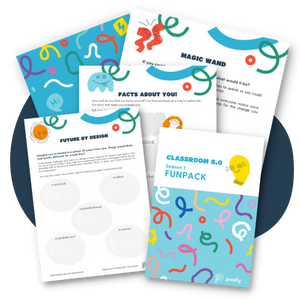
download your free fun pack!
Sign up to our Classroom 5.0 newsletter to keep up to date with episodes, and receive your free downloadable "Fun Pack" pack, featuring all of Season 1’s fun sheets.
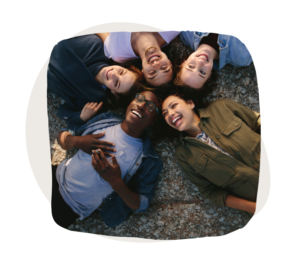
“We need to be helping people curate much more about themselves, but also their community that they're in and the context that they're in because that, the biggest, the most significant antidote to mental ill health”
~ Jan Owen
Thanks for listening!
Ratings and reviews are greatly appreciated, and help with the rankings of the show, which enable us to deliver you more interviews with people whose insights help us imagine and design future learning spaces. We do read each and every one of them, and are very grateful for your time and feedback.. And remember to subscribe to the show on iTunes to get automatic updates. It’s free!
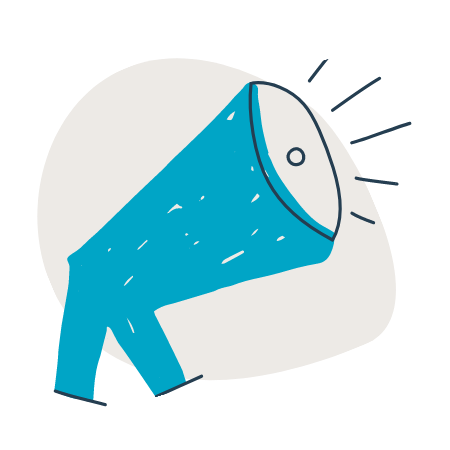

Fast track your student's access to learning future skills and mindsets!
A student-led and evidence-based wellbeing and career development platform to help young people uncover and deliver their unique potential.
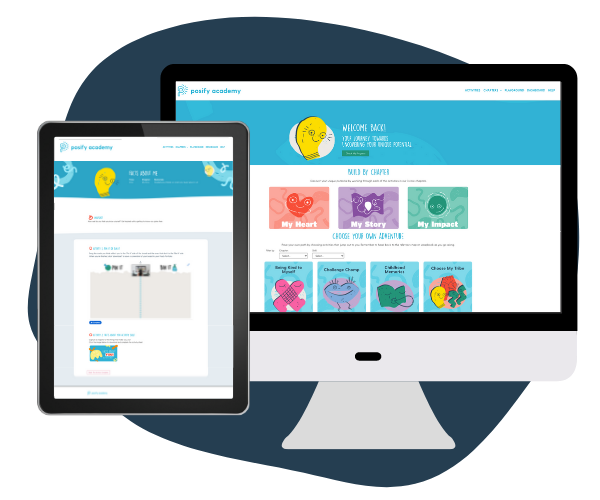
We acknowledge the Traditional Owners of our homeland, Birpai Country, and of the lands throughout Australia. We celebrate the diversity of Aboriginal and Torres Strait Islander peoples and their ongoing cultures and connections to lands and waters. We pay our respects to Elders past, present and emerging.
- © 2020 The Posify Group
- Privacy Policy & Disclaimer
- Website by Webstudio


